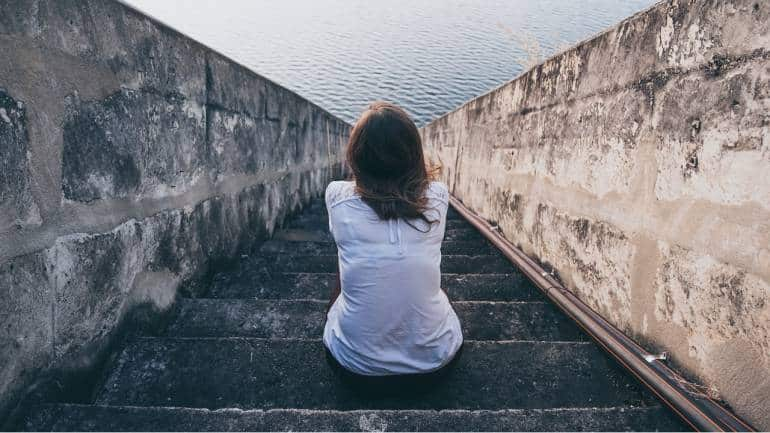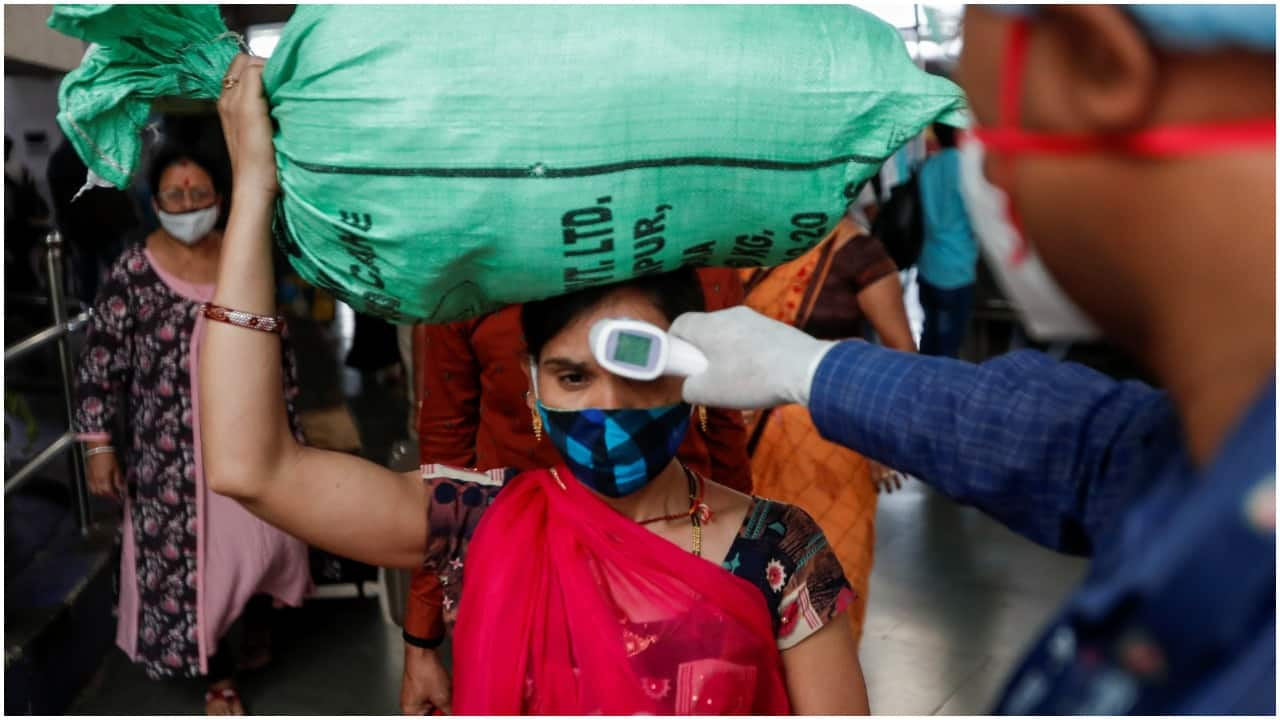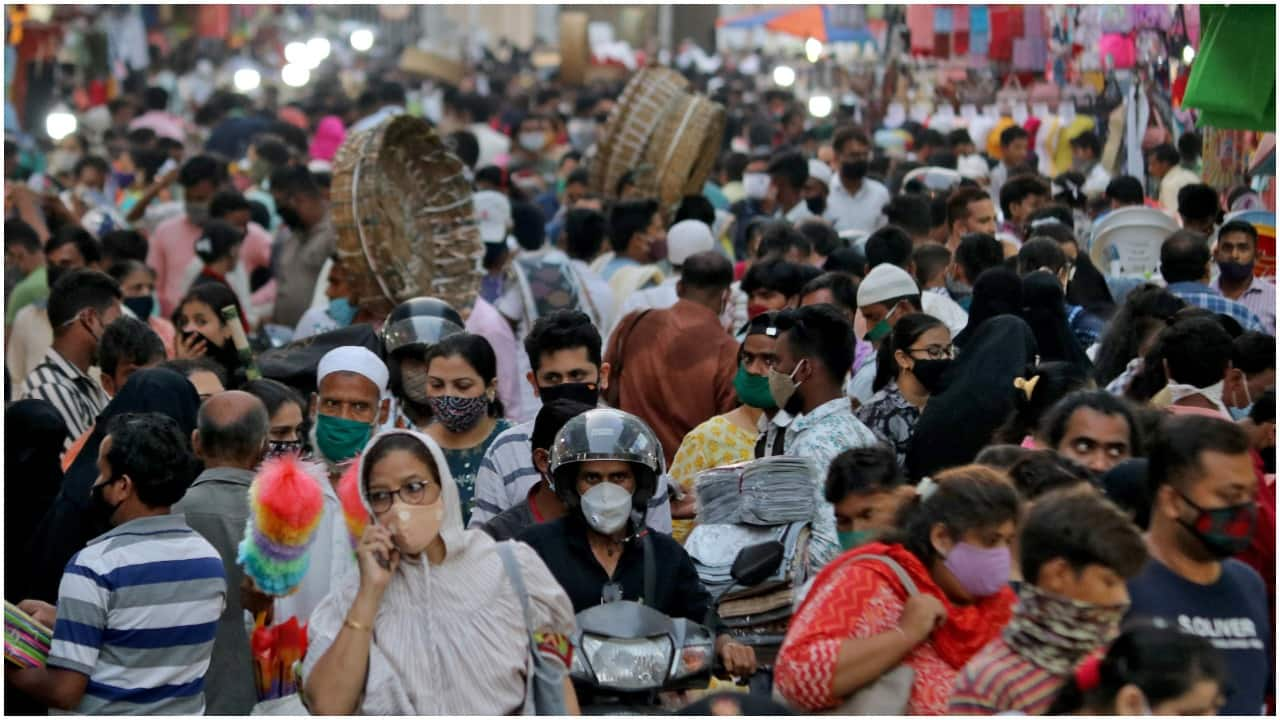
In-Depth | Resurgence of COVID-19 sparks fears of another wave of mental health problems

In-Depth | Resurgence of COVID-19 sparks fears of another wave of mental health problems
When the coronavirus pandemic ravaged the lives of numerous Indians in 2020, many thought the storm would blow away in a year and things would be back to normal.
Arya Narendran, a 22-year-old student from Bengaluru, is an example. “The pandemic ruined my plans of going abroad to pursue my masters. Having thought things would be better in a year’s time, I pushed it to this year. And we're here now and nothing is better. I don't see it getting better any soon and that is bothersome,” Narendran said.
It’s a similar feeling of anxiety and a sense of déjà vu for Nikitha Rao, a social media manager, from Mangaluru, Karnataka.
“I definitely feel that we’re back in March 2020. Although, this time, people are a lot more familiar with the situation than they were in 2020, so in that sense, they know what is coming and what they have to deal with. It does make me a little anxious because I thought I had planned this year out a little keeping the regulations in mind, but I don’t think I can stick to the same plan anymore”.
COVID-19 cases resurged in February and March 2021. On March 31, the government said the whole country was at risk and the health infrastructure could be swamped. It said Delhi — with 10,498 active cases — was now among the top 10 high-burden districts of the country. Maharashtra continued to be the worst hit, along with eight other districts on the list including Karnataka’s Bengaluru Urban.
Things seemed to be getting worse in Mumbai, which suffered heavily last year. On April 1, the city added 8,646 cases, a significant jump from its previous high of 6,933 new infections reported on March 28.
YouTuber and lifestyle blogger Scherezade Shroff from Mumbai, released a video recently where she spoke about experiencing a slump in her creativity because of the pandemic.
Yet, on the positive side, India is now armed with two locally made vaccines, which were initially given only to high-risk groups such as healthcare workers and senior citizens. The vaccines are now available to anybody who is 45 or older. But to flatten the rising COVID-19 curve, people would again have to minimise outings, maintain distance and spend more time at home.
This raises the question if the ‘new normal’ is now going to be ‘the normal’ and how COVID-19's resurgence will impact people’s mental health and emotional wellbeing, particularly when normal life is being disrupted all over again, with no clarity on when the virus will disappear.
In 2020, the strictly-enforced lockdown triggered a spectrum of mental health issues ranging from stress, depression to paranoia.
For millions of Indians, adjustment wasn’t easy. Coping with loneliness, anxiety and job losses, many had to overcome resistance to acknowledging that they may have a mental health problem and reach out for help.
A research paper titled ‘Mental Health and Psychosocial Aspects of COVID-19 in India: The Challenges and Responses’, published in August 2020, by Shankar Das, suggested that all large-scale disasters have had a significant negative impact on individuals ranging from depression, post-traumatic stress disorder, substance use disorder, behavioural disorders, domestic violence and child abuse. The current COVID-19 pandemic has given rise to similar problems.
Dr. Sundari KP, a counsellor, therapist and clinical psychologist from Bengaluru, told Moneycontrol that there was a significant rise in people reaching out to her for help from three major categories: young adults up to the age of 40, many of whom lost their jobs to the pandemic; students whose dreams of higher studies were shattered as most countries sealed their international borders for months; and children between the age groups of three and four, who were showing many behavioural issues, as they were confined to their homes.
There were many cases of substance abuse by children as they were unable to cope with so much uncertainty, Dr. Sundari said.
Sunita, a mental health counsellor at the Viveka Counseling Center in Bangalore — who wished to be identified only by her first name — also saw a rise in the number of patients during the lockdown. “In the initial stages, it was more of the elderly and people who were looking after people who were mentally ill because suddenly you couldn’t get to a doctor, you couldn’t go for your scheduled appointments,” Sunita told Moneycontrol.
While quarantining was necessary to curb the spread of the virus, it was bad for mental health. A study published by Samantha K Brooks in February 2020 in The Lancet, showed that in the past, many studies had reported negative consequences of quarantine including post-traumatic stress symptoms, confusion and anger. Longer quarantine duration, fears of infection, helplessness, frustration, boredom, inadequate information and financial loss created stress.
 A health worker checks the temperature of a passenger at a railway station in Mumbai, Maharashtra on March 17, 2021. (Reuters)
A health worker checks the temperature of a passenger at a railway station in Mumbai, Maharashtra on March 17, 2021. (Reuters)
Home confinement also aggravated problems for victims of domestic abuse. According to an article by news agency PTI, the situation had aggravated for victims of domestic abuse in the initial week of lockdown itself. The National Commission of Women reported that 214 complaints were received in just the first week of the lockdown, including 58 about domestic abuse.
The increase was attributed to abusers being confined to their homes with no outlet for their anger or frustration and the helplessness of the victims.
During the first 11 days of lockdown, India’s ‘Childline’ helpline received more than 92,000 distress calls on abuse and violence requesting protection, as reported by PTI. It became very traumatic for such young kids, to be confined with their abusers for so many months.
Rising unemployment and fear of job losses because of the lockdown added to people’s anxiety, Sunita said. Many such people who approached her were apprehensive about sharing their worries with their closest family members because they didn’t want them to get anxious, Sunita added.
Psychiatrists at leading hospitals in New Delhi also explained that depressive patients complained of anxiety related to the fear of COVID-19, as NDTV reported. While some patients expressed fear of being infected, others spoke about uncertainty related to losing their job or familial disturbances. Concerns were expressed over the rising level of disharmony and discords in the family atmosphere due to lockdown, lack of social connectivity for patients and withdrawal symptoms for alcohol and substance users who are habituated and dependent.

Dr. Sundari, a mental health professional for over 40 years, says lockdowns can be problematic even though people have the experience of dealing with it.
“A lockdown, on one hand, might be easy for people this time, as they have figured how to navigate their lives around getting supplies online and doing things online, but they might feel like they are going into a sense of loneliness or isolation”, Dr. Sundari said.
The surge in new infections has prompted some states to consider lockdowns again. Maharashtra Chief Minister Uddhav Thackeray ordered the state’s COVID-19 task force to come up with a Standard Operating Procedure for a ‘planned lockdown’. Since March 28, a night curfew was already being imposed and all social, religious and political gatherings had been banned. Karnataka made it mandatory for travellers to have a negative RT-PCR test before entering the state. Punjab and the national capital also tightened their restrictions.
In such a tense environment, with a possible lockdown looming, how are people feeling emotionally and mentally?
For Narendran, it is quite an anxious environment. “I worry that we'll probably have to go back to a lockdown situation and I cannot imagine any more of those really tense days where we spent so much time just cleaning everything we bought, worrying if we somehow still got infected despite masks and sanitising,” Narendran added.
As someone who aspires to grow in the field of event management, Nikitha Rao is scared about the uncertainty.
“Considering the situation we are in, I’m sure most of us feel the sense of fear and uncertainty. If not for COVID, I would have completed two proper years in the field of events, with proper experience in on-ground events and would have proceeded for my masters. I would have earned enough to contribute to my higher education fees. I did have an entire plan for my future laid out before COVID and now I just have to adapt to the current circumstances. This does scare me a little because the future is uncertain, especially now due to the pandemic”, Rao said.
It’s true that people are still dealing with multiple fears and anxiety. Dr. Sundari explained that the mind usually copes with any unpleasant circumstance with the belief that it’s temporary, as the pandemic seemed when it began. But now, when the pandemic does not seem temporary, it is hard for the mind to cope with the stress that comes with this prolonged uncertainty.
Dr. Sundari said it was too early for people to be resilient and deal with the situation. “One year is too soon to develop resilience towards this. In the initial days, our mind would have probably developed any resilience by ensuring that all precautions and protocols be followed, to keep ourselves safe from COVID-19. Yet some people were detected COVID-19 positive, in spite of following all restrictions. Then we were told that a vaccine, will protect us from COVID-19. But there is so much confusion surrounding the vaccine itself. So, it is difficult for the mind to develop any resilience.”
 People wearing protective masks crowd a marketplace amid resurgence in COVID-19 cases in Mumbai, Maharashtra on March 22, 2021. (Image: Reuters)
People wearing protective masks crowd a marketplace amid resurgence in COVID-19 cases in Mumbai, Maharashtra on March 22, 2021. (Image: Reuters)
However, Sunita believed there will be a lot more resilience this time than before. Sunita opined that people would be stronger in dealing with COVID-19 itself and would have developed coping mechanisms by now to help themselves.
These thoughts resonated with Arpit Raj, a recent graduate from Ahmedabad's Mudra Institute of Communication (MICA). Raj said he is better prepared to deal with situations mentally. “I have developed systems to make sure I’m flexible enough to keep my head clean.”

The ‘second wave’ of the pandemic in India, is bringing about a ‘second wave’ of mental health concerns too. If you are feeling bogged down or stressed at the moment, Sunita suggests breaking down your problems into smaller tasks that are easier to accomplish.
Sunita, mental health counsellor, says this will reduce anxiety levels as you will be more focused on completing your immediate tasks, rather than focusing on the uncertainty the problem brings.
Dr. Sundari also gives a checklist that you could follow to make sure that you are feeling healthy mentally and physically. That entails:6. Watch feel-good movies that will make you laugh.
If you feel the need to reach out for help, you can contact Dr. Sundari at sundarigandhi@yahoo.com.